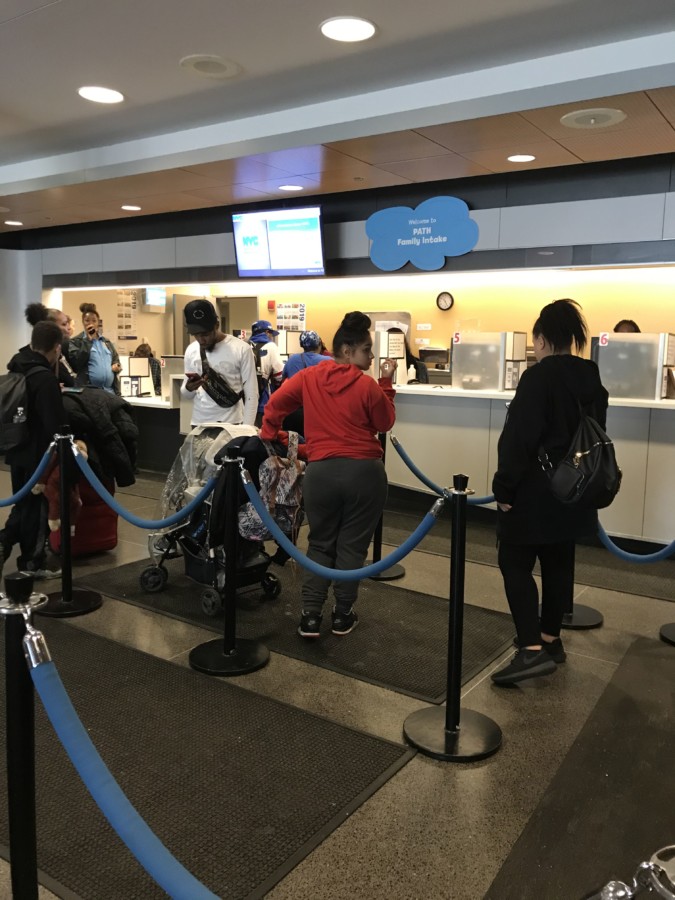
When Francheska Lappost, a 24-year-old mother of two, moved from a homeless shelter to her first apartment in Williamsbridge five months ago, it wasn’t an upgrade. There were cockroaches, the stove wouldn’t turn on, the bathroom fan was broken and the sink was clogged, Lappost said.
“It was better living in the shelter than where I live right now,” she said.
Lappost is looking for a new apartment, but finding a place in her price range has proved to be an onerous task.
Lappost receives a monthly rental voucher from the Family Homelesness and Eviction Prevention Supplement (FHEPS), a program run by the New York City’s Human Resources Administration. The agency adjusts the amount of the vouchers according to household sizes. Under this program, Lappost is set to receive $1,557 a month, the maximum for a family of three.
Lappost qualified for the housing voucher because after migrating from the Dominican Republic, she and her family spent 10 months in a homeless shelter in Van Nest, on the east side of the Bronx. That arrangement was provided by PATH, the agency that manages the municipal shelter system.
Lappost is five months pregnant and is now looking for a place to live with her 4-year-old and 7-year-old children. The only option in the FHEPS price range is another one bedroom apartment.
According to the Coalition for the Homeless, a New York-based advocacy group, there are not enough apartments to cover the affordable housing demand. Only 2% of studios and 3% of three-bedroom apartments are in the price range established by CityFHEPS, according to a 2019 report released by the non-profit. In New York City, there are 16,480 vacant studio apartments in the vouchers price range, while there are 17,887 single adults living in the shelter system.
“We need to be both giving people vouchers to help close the gap between income and rent and we also need to be actually extending the supply of truly affordable apartments if we want to fight homelessness,” said Jacquelyn Simone, a policy analyst for Coalition for the Homeless.
Coalition for the Homeless wants the city to build 24,000 new units and to preserve the affordability of 6,000 more by subsidizing existing units. Additionally, there is a proposal by District 33 Councilman Stephen Levin that would raise the city voucher price levels to fair market rents and which would widen the supply of apartments for voucher holders, Simone said.
Even if CityFHEPS beneficiaries find apartments in their price range, that doesn’t guarantee their application will be approved, said Craig Waletzko, community engagement coordinator of the nonprofit Fair Housing Justice Center. Landlords are often upfront about rejecting applications from renters who use vouchers, Waletzko said, despite a state law that prohibits this type of housing discrimination.
“They’re just so many providers that are convinced that they don’t need to accept renters or people seeking homes using subsidies to pay their rent.”
Fair Housing Justice Center receives complaints and conducts approximately 100 investigations a year to determine whether landlords discriminate against voucher holders.
Representatives of the non-profit go undercover, looking for apartments, trying to isolate the factor that would trigger an application denial. They send two separate testers with similar incomes, jobs and credit scores. The only difference between them is the voucher.
Landlords and brokers often fail the test, Waletzko said, treating those with vouchers differently than applicants not enrolled in rental assistance programs.
Lappost encountered a similar bias on her first apartment hunt. “It took me three months to find my apartment. Not everyone takes programs,” she said.
The tight housing market in New York City means that rents tend to be high, which limit the options available for CityFHEPS voucher holders.
“The quality of housing that is available to folks when they are using the programs is just terrible,” said Waletzko.
Lappost’s search for an apartment is especially urgent this time around. Her landlord is suing her for not paying rent. She’s not sure why the rent hasn’t been paid; she thought her FHEPS voucher meant it would be paid automatically. Lappost is convinced that her landlord doesn’t have the grounds to evict her.
Robert Farina, the lawyer who represents Lappost’s landlord, said that although she gets a benefit from the Department of Social Services, she is still responsible for paying her rent. The only exception to this rule is Section 8, a different program in which the city pays part of the rent directly. Lappost’s rent was not paid in full for the months from May to October, Farina said.
Lappost got another citation to appear in court Oct. 31. She has to show proof of all of the FHEPS invoices . Lappost said she had them – she carried them in her purse the last time she was in court.
Lappost is running out of options, she had to quit her babysitting job because of her pregnancy. And she’s concerned about the additional bills from housing court. “He also wants me to pay $1000 for his lawyer,” she said.

